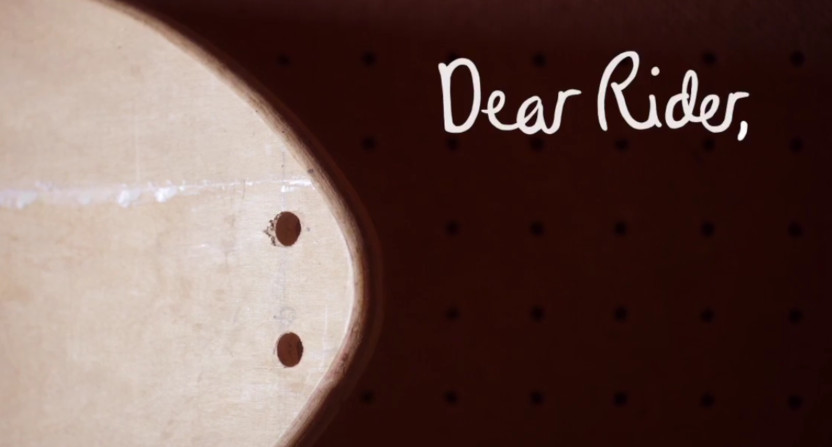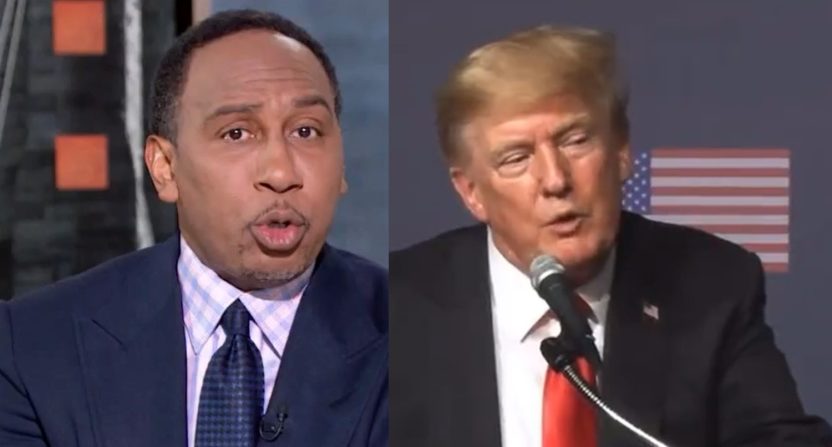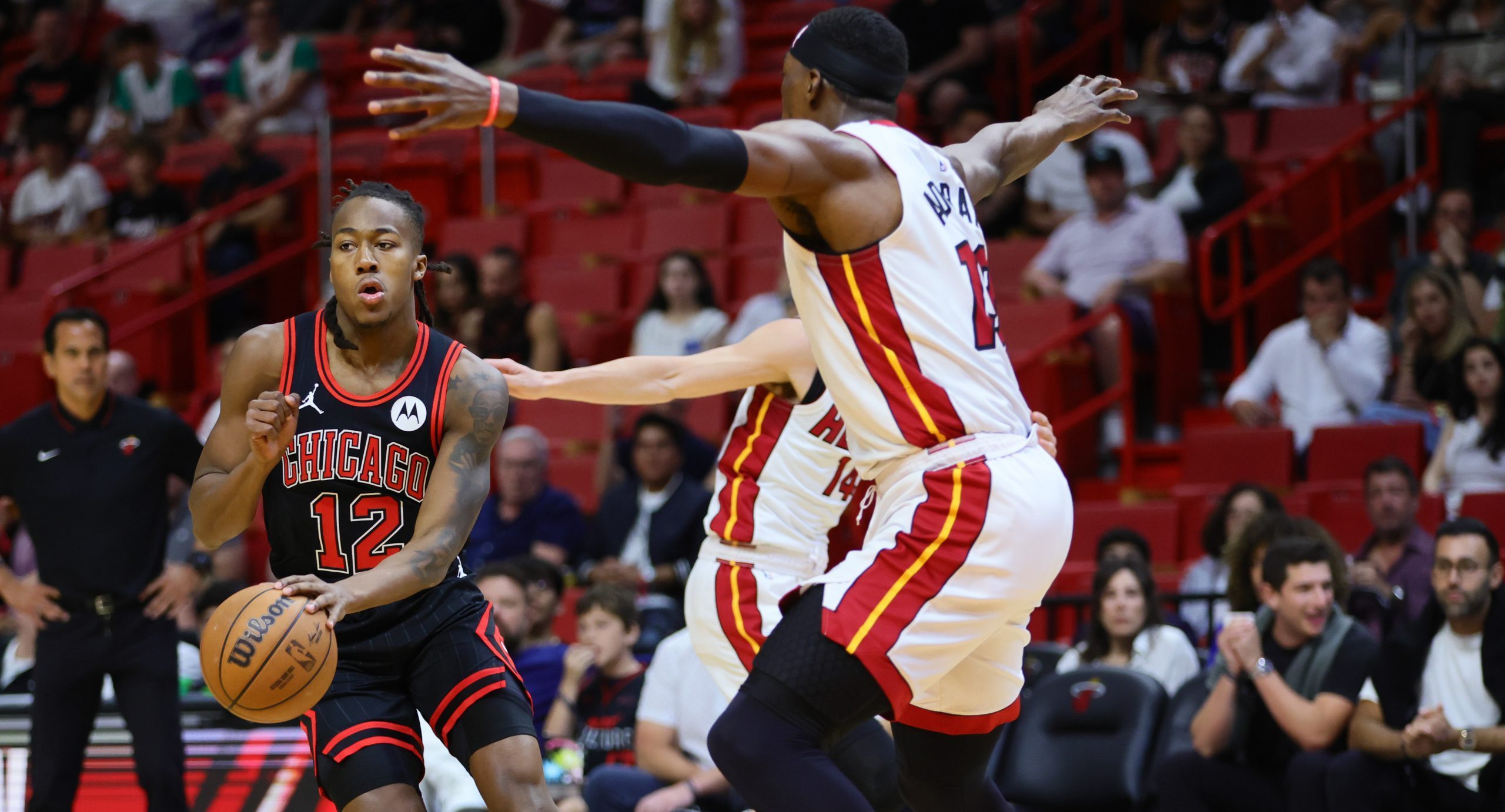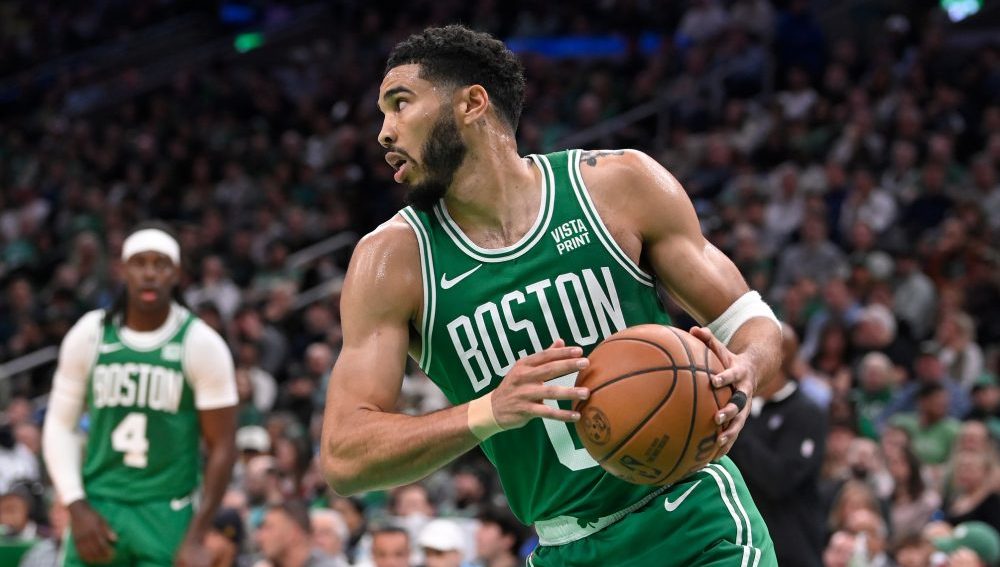Tuesday sees the premiere of Dear Rider on HBO (9:00-10:30 p.m. ET/PT) and HBO Max. The documentary, from director Fernando Villena and Red Bull Media House, covers the story of Jake Burton Carpenter. Burton Carpenter built snowboarding into an eventual Olympic sport and built his Burton Snowboards company into a world leader, but faced significant health challenges, including nerve disease Miller Fisher Syndrome and cancer (which claimed his life in 2019). Villena spoke to AA recently about the film, and said what particularly struck him about the project was some of the footage of Burton Carpenter using notecards to communicate with his family after Miller Fisher Syndrome rendered him initially unable to talk to them.
“It was after Miller Fisher, a couple years after, and I was struck by his resiliency. And as a filmmaker, you’re always looking for a way into the story emotionally. What really struck me was how he used the notecards to communicate to loved ones, and his need to connect, and his need to be able to still be part of the community and his family. I just thought that was so powerful. It was a theme I could really dig into and be inspired by.”
Interestingly enough, while this is Villena’s second film with Red Bull Media House (following 2019’s Any One Of Us, which also aired on HBO, and covered professional mountain biker Paul Basagoitia’s journey with a spinal cord injury and how that compared to other people dealing with SCI), he told AA extreme sports isn’t something he’s personally involved with, saying “I don’t do anything extreme.” He said that these two extreme sports films came out of a connection with Ben Bryan, a producer on both.
“In a lot of ways, I fell into it. I met Ben Bryan and he hired me to work on one of his films as a polish at the end of an edit, and he and I got along really well, and he thought I would be a good fit for Any One Of Us. And Any One Of Us at first was supposed to be a small, art-type film, but it turned into something much bigger and evolved, and we were able to find and interview the wonderful chorus who really helped Paul expand his experience. And then from that came Dear Rider.”
And Villena said his lack of participatory experience in extreme sports has actually proven beneficial in terms of directing these films.
“Because I’m not of these worlds, I’m very curious about them. And I’m not biased by anything. I just get curious and I start wanting to know more; ‘That’s really interesting to me, and that’s really interesting to me.’ And sometimes what happens is I focus on aspects of the story that someone who’s more of a core snowboarder or a core mountain biker knows, but to me, it’s super interesting. So I end up telling this kind of unexpected story about a mountain biker, or about Jake Burton and snowboarding, that reveals different shades of those sports.”
Villena told AA the idea of the film was going around at Red Bull Media House before his involvement, and even after he heard about it, he didn’t initially think he’d land the directing role. But that all changed.
“The project was developed by Ben Bryan and [fellow producer] Clark Fyans for about a year before I even knew about it. [Ben] worked with Jake, getting the research done and the parameters done. And when it was time for them to start thinking about directors, Ben approached me about Jake, and I didn’t know who Jake was. But I’d been working on a prior film with Ben, Any One Of Us, and I was just finishing that up, and he was like ‘Would you be interested in making a movie about Jake?’ So I went and put together a proof of concept.”
“I thought that was going to be it. I was going up against some established directors, and I wasn’t his first choice at that point. But then the stars aligned, and luckily for me, I wound up being the one directing the film.”
There would seem to be some overlap between Any One Of Us and Dear Rider, considering the elements of both involving tough struggles with mobility-limiting injuries and the overarching extreme sports world in both. But Villena said while he saw those connections at first, the process of making Dear Rider wound up leading to what he sees as quite a different story, as much of it is focused on Burton Carpenter’s early work building snowboarding into an accepted mountain activity (which met a lot of resistance from ski hills) and a sport. He said he found the way Burton Carpenter grew the business through advertisements and mail orders particularly notable.
“On the surface, there is an aspect of recovery from an injury. But they’re vastly different stories; they’re different men, they’re different people, and also, it’s a different injury. The themes of resiliency and recovery and reinvention, I think, crossed over, but Jake’s story was also the story of an entrepreneur, and a man who envisioned a sport where there was none, and threw everything he had into making it a sport. What courage that must have taken. And especially when considering that this was before the internet; this was the startup of startups. He was trying to turn a toy into a sport.”
There’s footage in Dear Rider of Burton Carpenter discovering the Snurfer, an early attempt to make a surfboard that would work on snow. Villena said that toy proved a critical moment of inspiration for Burton Carpenter, and convinced him there was more to be found there.
“He loved surfing, but he couldn’t surf in the winter, or surf where he lived. So the first time he got on the Snurfer, he was like ‘Oh my god, I can actually surf on snow.’ But then there was something beyond that where he was like ‘Why isn’t this a sport? This should be bigger! This should be everything, this should be the biggest sport in the world.’ And he dedicated his life to making that a reality.”
Dear Rider covers a lot of different stories: Burton Carpenter’s personal story, his company’s story, and the overall story of snowboarding. Villena said it wasn’t easy to blend all of those, and the initial approach was even more far-flung. He said they managed to make it cohesive by dialing back the focus to covering all these other developments through the particular eyes of Burton Carpenter.
“It was complicated. The problem that you can run into, and we did, was trying to tell too many stories, do too many things, juggle too many balls. We ended up on the central theme, which was the history of snowboarding told through the eyes of Jake Burton Carpenter. Specific to Jake, his life experience, his influence. A lot of things happened in snowboarding outside of his experience and his influence, so that part of the history of snowboarding didn’t fit into this version of the story. It was also trying to be clear about the themes of the film, being clear about the story that we were telling, and we always went back to our theme, to our very specific throughlines.”
There are plenty of interesting visual flourishes throughout Dear Rider, and some that particularly stand out are the cuts from surfing and skateboarding footage to snowboarding footage and vice versa, which illustrates the roots of snowboarding and the commonalities between it and those sports. Villena said that was a logical call to make considering how “they’re all rooted in boards,” and he added that part of what’s made snowboarding what it is now is those different influences.
“It was inspired by surfing, but it was also inspired by skiing, downhill racing,” he said. “And [the skateboarders] brought a whole different energy and a whole different style. And that was that big rivalry in those early days, was it going to be downhill or was it going to be freestyle? And freestyle won out. Jake admittedly was late to that party, but he caught on quickly and successfully, and made the turn.”
The title of the film comes from the “Dear Rider” letters Burton Carpenter would include on the first page of his company’s yearly catalogue, discussing developments in snowboarding over the year and what areas were growing to accept it. Many of those are included throughout the film, read by Woody Harrelson. Villena said it was critical to get those in to show the evolution of the sport, and what Burton Carpenter was thinking about at these particular points in history.
“The Dear Rider segments were very important, because Jake’s passion was always the riders. Everything was for the riders, every decision they made as a company was to make the experience better for the riders.”
But Villena said that was a challenging thing to incorporate. They had other footage of Burton Carpenter, both from interviews for this project and archival interviews he did with other media, but even though these “Dear Rider” letters were crucial, there wasn’t audio of him reading them. Villena said the team went back and forth on how to work those in, and they eventually landed on Harrelson, a long-time friend of Burton Carpenter.
“We had limited material, obviously, but we had just enough to make it happen, except for the ‘Dear Rider’ segments. He never recorded those. So we were in a tricky spot with ‘How can we get somebody to narrate these?’ We kicked around a few ideas, we thought about a soundalike, or having the family members read them, but in the end, Woody Harrelson was kind of the obvious choice. He was a friend of Jake’s, they hung out, they enjoyed life together, and he knew Jake, he knew what Jake’s spirit was. Ultimately, he was able to tap into the essence of Jake, and in a way that by the last couple of ‘Dear Rider’ segments, when I’m listening to him, I feel like I’m listening to Jake.”
Dear Rider premieres on HBO (9 p.m. ET/PT) and on HBO Max on Tuesday, Nov. 9. We’ll have a full review here before that.
[Screencap from a Dear Rider screener]







